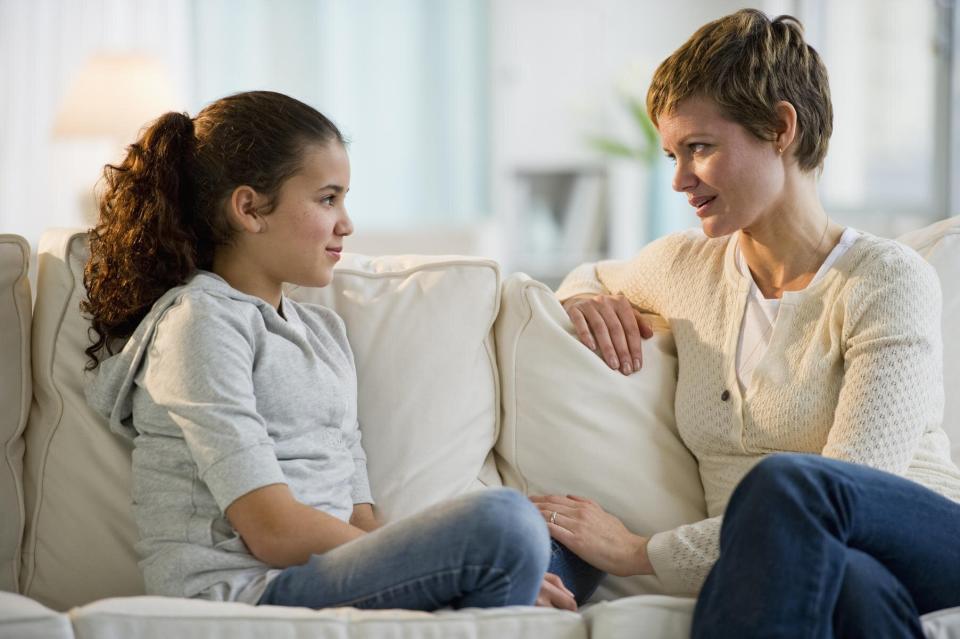8 Ways to Decrease Your Family's Chances of Getting the Coronavirus

Check the Centers for Disease Control and Prevention (CDC) and Parents.com's COVID-19 Guide for up-to-date information on statistics, disease spread, and travel advisories.
If you're a parent, you're probably glued to news coverage of the coronavirus (and the disease it causes, COVID-19). It has spread to nearly every country, sickened more than 405 million people, and caused at least 5.7 million deaths. There's also been more than 77 million confirmed cases and 914,346 deaths in America.
It's natural for parents to worry but, fortunately, experts say your child has a lower chance of contracting the coronavirus by practicing safety precautions—which is why masks and social distancing are so important for unvaccinated individuals. If your kid does develop the coronavirus, it probably won't be severe or life-threatening. Confirmed cases in children tend to have mild symptoms, according to the Centers for Disease Control and Prevention (CDC). However, severe complications are possible—especially for individuals who are immunocompromised or have underlying medical conditions.
Even so, it's important to be prepared. Here are eight ways to lower your family's chances of getting the coronavirus.
Practice social distancing.
The coronavirus is a respiratory illness like the cold or flu. Contaminated droplets from coughing, sneezing, talking, or exhaling can travel up to 6 feet, and they can infect people by entering their eyes, nose, or mouth. The CDC says that airborne transmission is also possible when contaminated droplets linger in the air. This is especially scary considering that COVID-19 may be asymptomatic, and it can also spread before people show any symptoms, according to the CDC. It's vital to practice social distancing standards set in place by the government. If you aren't vaccinated, stay at least 6 feet away from others, and avoid high-traffic places where transmission is more likely.
Be cautious in public places.
When you're in public, make sure to take all necessary precautions, especially if you aren't vaccinated. For example, you can wipe the grocery cart handle with a disinfectant wipe and avoid direct contact with cashiers. Read more about grocery shopping during a pandemic here.
Wear a mask.
The CDC suggests that unvaccinated people ages 2 and up wear a face mask "in public settings where other social distancing measures are difficult to maintain, especially in areas of significant community-based transmission." Always wear a mask in public if you don't feel well, since the barrier could block your infected droplets from contaminating others. CDC guidance also suggests that wearing a mask doesn't just benefit those around you—it can protect you as well.
Given the rise of the contagious Delta and Omicron variants, the CDC now says that vaccinated people should mask up indoors in areas with "substantial or high" community spread. Also, "you might choose to wear a mask regardless of the level of transmission if you have a weakened immune system or if, because of your age or an underlying medical condition, you are at increased risk for severe disease, or if a member of your household has a weakened immune system, is at increased risk for severe disease, or is unvaccinated," says the CDC. Note, however, that the vaccines are still highly effective against severe illness, hospitalization, and death from the coronavirus.
Disinfect your home and belongings.
According to a March 2020 study from National Institutes of Health, CDC, UCLA, and Princeton University scientists, the coronavirus may be able to survive for three hours in the air, four hours on copper, 24 hours on cardboard, and two to three days on stainless steel and plastic. That's why it's important to sanitize key things in your home—such as your countertops after placing grocery bags on them—to lower your chances of getting the coronavirus. Check out this list of other things to clean ASAP to prevent getting sick.
Teach your kids not to touch their faces.
If bacteria-ridden droplets get into a child's nose or mouth, they can become sick with the disease, says Miryam Wahrman, Ph.D., biology professor and director of the microbiology research lab at William Paterson University and author of The Hand Book: Surviving in a Germ-Filled World. Encourage your kids to avoid touching their faces in public.
Make sure kids wash their hands.
The best way to lower your chances of getting the coronavirus is practicing proper hand hygiene, so teach your kids how to wash their hands with soap and water for at least 20 seconds. Make sure they clean up before eating, whenever you return from being in public, and before touching their eyes, nose, and mouth. You can also use hand sanitizer with at least 60 percent alcohol in a pinch, according to Dr. Wahrman.
Use caution when traveling.
The CDC recommends avoiding nonessential domestic and international travel if you're not vaccinated. Check out the latest guidelines and recommendations, and use your discretion before embarking on a trip. You'll need to weigh the benefits against the risk, says Dr. Wahrman. If you do travel by plane, wear a mask, avoid people who look sick, wash your hands often, and disinfect communal items like tray tables.
Get vaccinated when it's your turn.
With three approved vaccines that can help prevent you from becoming sick with COVID-19 being distributed to the public, there's finally light at the end of the tunnel when it comes to the pandemic ending. All Americans 5 and older are now eligible to receive a COVID-19 vaccine (and younger kids may get approved soon). Major medical organizations urge Americans to get vaccinated when they can—and get your booster shot if you're eligible as well.

Tetra Images/Getty Images

